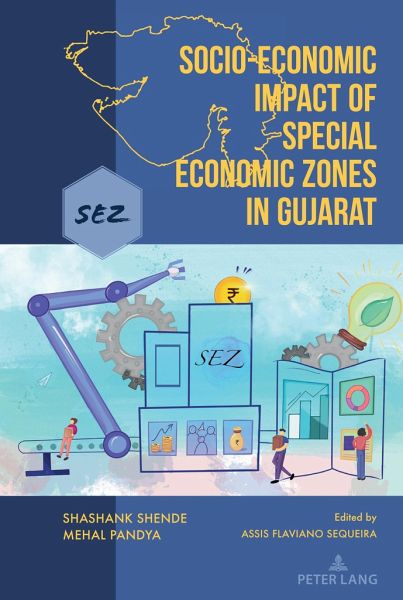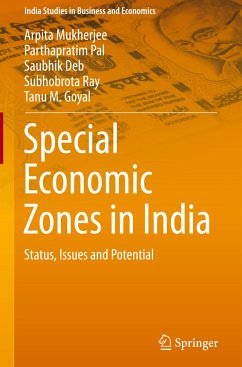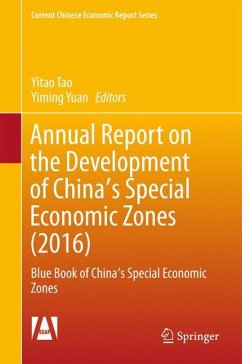
Socio-Economic Impact of Special Economic Zones in Gujarat
Versandkostenfrei!
Versandfertig in 6-10 Tagen
104,15 €
inkl. MwSt.
Weitere Ausgaben:

PAYBACK Punkte
0 °P sammeln!
Gujarat is the nursery for Special Economic Zones (SEZs) in India; the very first Asian EPZ was housed in Gujarat in 1965. This study examines the contribution of Gujarat SEZs in socioeconomic development with specific research questions: (1) Are SEZs in Gujarat effective on the development front in the context of social and economic aspects? (2) What is the impact assessment of Gujarat SEZs by reckoning metrics based on direct economic impact, indirect/wider economic impact and social impact? (3) How can vacant land in SEZ be optimally utilized in Gujarat to fulfill the SEZ objectives? In the...
Gujarat is the nursery for Special Economic Zones (SEZs) in India; the very first Asian EPZ was housed in Gujarat in 1965. This study examines the contribution of Gujarat SEZs in socioeconomic development with specific research questions: (1) Are SEZs in Gujarat effective on the development front in the context of social and economic aspects? (2) What is the impact assessment of Gujarat SEZs by reckoning metrics based on direct economic impact, indirect/wider economic impact and social impact? (3) How can vacant land in SEZ be optimally utilized in Gujarat to fulfill the SEZ objectives? In the first of the three phases a model (research concept) was constructed from the literature to explore and validate the variables within the SEZs' influence on the social and economic development. The second part is a combination of single cross-sectional descriptive research design and empirical research with the use of quantitative techniques such as questionnaires and interviews with various stakeholders. This part was concerned with the establishment and testing of the hypothesis. Through a multilayer perceptron neuron network built with use of various statistical tools and techniques, the factors for socioeconomic development were ranked to get the final model with predictor importance. In the third part the important parameters were validated and a cross-comparison case study was done to obtain a confirmation of the findings. The extremely important factors are increase in exports, indirect jobs, logistics and minimum wages. The final model with predictor importance with target of SEZ impact on socioeconomic development features economic factors, social factors, indirect economic and other local factors in descending order of importance. Some optimal uses of vacant land as derived from the research findings include conversion of sector specific SEZs to multiproduct SEZs with a few service sector units in the mix and broad banding of SEZs.














